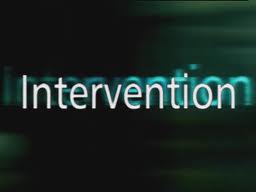The Care Bair – FDIC’s Sheila Bair Wants Principal Reductions from Banks With Loss Sharing Agreements
First posted in December 2009,… but re-posted at reader’s request.
I’ve had a love-hate relationship going with FDIC Chair, Sheila Bair since 2006. In case you don’t remember, Sheila was the Bush appointee with a brain and a heart, go figure, who first uttered the term “loan modification,” to which, I believe, Hank Paulson replied: “Yeah right… Sheila, be a doll and run down to the corner and get me a Nonfat Grande Vanilla Latte, would you please. Thanks.”
And, even though she brought it up several times after that, and Congress asked her to come testify about it, that was about as far as she got with the idea while Bush was in office. Oh, I know, I’m leaving out the one Hope-4-Homeowners modification… so, big deal.
So, then as all the Bushies were loading up the wagons and heading west to the Lone Star State, Sheila stayed behind. Republicans accused her of sucking up to the incoming Obama Administration, jockeying for a position that would let her keep her job. Frankly, I didn’t care what the Republicans said at that point in the game. If Sheila thought she could get something done in the loan modification department, then by golly, let’s give the woman a try… Lord knows Paulson was in no hurry to modify loans, unless perhaps Goldman Sachs was the borrower.
So, at this point I liked her. After all she was getting absolutely no support from her Red State pals, and she seemed to have her heart and brain in the right places.
Then she took over IndyMac Bank and did a masterful job, the papers reported. I don’t really know how perfect it was, but quite a few people said it was a model for the rest of the banks in this country.
Then Obama announced the making Home Affordable program, the one that had absolutely no shot whatsoever of working, and basically she went along for the ride. She was honest on ABC News last April, telling everyone watching that the Making Home Affordable was not designed to stop foreclosures, and I published several articles in which I referenced her quotes on that subject… but no one listened back then. That was when the Obama plan could do no wrong. (Now, it seems, it can do nothing right.)
Sheila is also the one that negotiated with the purchasers of banks like IndyMac, so that they could buy the bank with a loss sharing agreement. Under most loss sharing agreements, the FDIC agrees to assume up to 80% of any future losses, up to a certain threshold, and the bank gets the other 20%. If losses exceed that threshold, FDIC picks up 95%.
Pretty cool, huh? Maybe we should pool our money and buy one of these failed financial institutions. After all, there are going to be quite a few going on sale in the coming months.
FDIC says they have loss sharing agreements with 53 financial institutions, but I haven’t been able to find the list. Bloomberg reported the FDIC having loss sharing agreements worth $101.9 billion, including 44.7 billion for single-family loans.
Of course, after IndyMac was sold to a new group of investors (the largest two shareholders are George Soros, Michael Dell) and renamed One West Bank, I started liking her less. She just hasn’t been doing much lately. Oh sure, she takes over a couple of banks a week these days, but I can’t think of a thing she’s done this whole year to help a single homeowner. I’m sure I’m wrong about that… I hope, but it doesn’t change the fact that IndyMac and other banks and servicers have been abusing homeowners and she hasn’t done anything meaningful to prevent it.
Well, now Sheila the Care Bair is speaking out once again. And this time she’s talking about principal reductions. (You go girl!) Late this week, Sheila told Bloomberg News:
“We’re looking now at whether we should provide some further loss sharing for principal write downs. Now you’re in a situation where even the good mortgages are going bad because people are losing their jobs. So you have other factors now driving mortgage distress.”
Sheila has started talking seriously about lenders reducing the principal on $45 billion in mortgages that have been acquired from failed banks taken over by FDIC. It’s not like this step alone would solve the foreclosure crisis the country is facing, but it would certainly be a step in the right direction, as it would establish the importance of principal reductions.
Up until now, of course, the issue of principal reductions has been a bit of a third rail with the American public. Why should “they” have their mortgage balance reduced? “They,” who made irresponsible decisions, took on too much risk… blah, blah, blah.
The truth is, those thinking this way are their own worst enemy, they just don’t realize it yet. They will soon enough, however. It may seem counter-intuitive, I realize, but I’m going to take a shot at simplifying the issue… so, here goes.
First of all, let’s just establish a few things:
A. Banks don’t really have much money to lend out for 30 years. They have a lot of money to lend out for short periods of time, like annual revolving credit lines, things like that, but not much at all for longer-term borrowing. That’s because people don’t put their money into banks and just leave it there for 30 years. The vast majority of people would put money into a CD for a year or two, but not much beyond that.
B. So, when a bank originates a mortgage, it plans on selling it in the secondary mortgage market*… not keeping the loan on its balance sheet. (*The one we don’t have any more because no one trusts those AAA ratings Wall St. was so fond of during the bubble.)
C. Banks have ratios they must comply with in order to be considered solvent by federal banking regulators. They have to have x amount of cash or cash equivalents, and they can only hold x amount of less liquid, and therefore higher interest bearing, types of securities.
D. When a bank holds a loan on its balance sheet and it is paying as agreed, it remains in a homogenous pool of loans and everything is fine. But when a bank learns that a loan they are holding is at risk of default, the bank has to take that loan out of the homogenous pool of loans and place it as an impaired loan into a heterogeneous pool… and reserve for the future loss of that loan defaulting. Banks don’t like doing that because the higher the reserve account balance (called the ALLL ““ Allowance for Liens, Losses and something else I can’t remember at this moment) the lower the profitability and therefore, the annual bonuses.
Okay, got it so far? Hope so…
We have reached a point where we have to stop foreclosures, because if we don’t property values will continue to fall and more and more people will start walking away from their mortgage whether they can afford the payment or not. This will put even greater pressure on the bank’s financials, because at a certain point what we’re talking about is stabilizing the banks, remember. Lower values mean less spending, which in turn means layoffs, which bring more foreclosures… foreclosures breed foreclosures, remember?
There’s another dynamic involved and it involves the so-called toxic assets that are still on bank balance sheets just as they were last fall when Hank Paulson wanted to buy them off of the bank balance sheets with the $700 billion TARP money. Eventually, we are going to have to buy these “toxic assets,” from the banks, or they won’t recover and start lending again and we won’t see a recovery,
When Paulson tried to buy the toxic mortgages from the Banks into order to try to stop them from closing their doors for good, the problem was that the banks wouldn’t sell them at anything less than face value, even though they had been written down in most cases, and they certainly weren’t worth anything near face value.
Paulson couldn’t come up with another way of valuing them, especially in the time he had before the banks defaulted, so he didn’t have any other option other than to buy preferred shares of stcok. Without going into detail, preferred shares are equity, but they function more like debt or bonds, and they don’t have voting rights, as do common shares.
Paulson wasn’t fixing anything but the very near term problem of imminent default of the banking system. And since then we’ve basically done more of the same, except that we’ve run out of money to paper over the real problem… so, the banks remain technically insolvent. Ultimately, we need to buy the toxic mortgages off of the banks balance sheets, because only the government can take on the re-default risk, or the risk that what says AAA is actually D-.
If we pay some lower amount than the face value of the loans, then we’ll leave a gaping hole in the balance sheets of the bank sold us the assets, and I use that term lightly… and we’ll have to give the banks the money to refill that hole we created by paying less than face value. In other words, we’re going to paying for them one way or the other. No question about that. We only fix the problem by paying the face value of assets we know are not worth face value.
So, the only remaining question really is: How toxic do you want the assets to get before “we” have to buy them all at face value? We could let the entire housing market drop to essentially zero, but that would cause massive numbers of strategic defaults, which is the phrase being used to describe people walking away irrespective of whether they could afford the payment or not, which would quickly get out of control, collapse the banking system, and make any sort recovery impossible.
Critics, who don’t think homeowners deserve the government’s help, are the cause of the “third rail” aspect of the issue. These people think that modifying a loan for a homeowner who is seriously underwater is somehow giving that homeowner an undeserved taxpayer funded gift ““ a reward for having acted irresponsibly. Speaking about these unfortunate homeowners, you hear them say things like: “They took a risk and lost, so they must pay the price.”
The problem is, and I’ll try to be kind here as some of “these people” are friends of mine, they’re not looking at the situation correctly.
When you have someone with a $500,000 mortgage, and the market value of the home is now $300,000… and you modify the loan by lowering the interest rate by a few points and extending the term to 40 years… that’s no gift, sweetheart.
That may not be considered manslaughter under the law, but it’s certainly the financial slaughter of a man… or woman, as the case may be. When you modify that mortgage by lowering the interest rate and extend the term, you just cost that person who was already $200,000 underwater, a lot of money.
The banks know this. They also know that the likelihood of that person staying in that home and making all of the payments is slim to none because it’s going to be decades before that homeowner has any shot at building any equity.
That’s why the bank doesn’t want to modify the loan. The bank knows that even though the person, when threatened with losing the home, will agree to almost anything to keep it… a year or two later, when the shock of losing the home has worn off, that homeowner is going to wake up one morning and realize that they’re paying twice as much as the home’s worth… and they’re going to walk away.
The only way you’re going to keep that homeowner in that house and paying the mortgage is to write down the principal to the market value. If you keep the mortgage balance at $500,000, it’s a foreclosure waiting to happen. Maybe not today… maybe not next year… but at some point that person will realize that they’re paying hundreds of thousands of dollars they don’t have to pay to live where they live. And that just doesn’t make sense.
I recently received a call from a homeowner who was quite upset with her bank who had treated here unconscionably for months. I won’t mention which bank it was except to say that it used to be called IndyMac Bank.
In typical IndyMac fashion, they had jerked her around for months before foreclosing and selling her home without telling her about it. She found out when the new owners stopped by to take a look at the home they had just purchased at auction for $420,000. Her balance on her loan was $760,000, and she was upset.
After a few minutes, I interrupted her as politely as I could and asked her the following question:
“What if I could call IndyMac’s CEO right now, and then called you back and said that I had struck a deal and you could keep your home. You’re approved to buy it back right now with no money down for $760,000… would you do it?”
There was silence on the phone. I waited. After a minute she said quietly: “That’s a really good way of looking at that.”
“What do you mean?” I said. “You wouldn’t buy it back for $760,000? Why not?”
“Well, because the investor just bought it for $420,000, why would I pay $760,000?” She replied.
“But that’s exactly what you said you wanted when you asked for a loan modification,” I pointed out.
“That’s a really good way of looking at that,” she said again.
“Glad I could help,” I said back.
Okay, so I’m not exactly Mr. Sensitive… so, what’s your point? What I showed her was a glimpse of the future. How long do you suppose it would have taken her to realize that the modification she would have agreed to was an absurd proposition? A year… two… three? My guess would be that she’d wake up to the fact when her youngest, who’s now 14, was about to graduate from high school, if not sooner.
And there you have a loan modification in all its glory. Some gift.
Hi, Mr. Banker. Would you mind burying me in my home in such a way that I’ll never build equity while I pay way more than the market price to live here every single month for… oh, say 25 years? You wouldn’t mind a bit? Why, thank you kind sir… what a lovely gift. You really shouldn’t have…
Now, if that banker had written down the principal that would have been a very different story. In that case there’s a chance that she would continue paying the mortgage on time as agreed.
Let’s get back to the crowd that thinks of mortgage modifications as some sort of undeserved gift.
There are a few facts this crowd is missing. Try this on for size:
The average REO property sells for 66% of the non-REO sale. That means that when there’s a foreclosure on your street or very near by, your $100,000 home just dropped in value and is now worth something like $83,000, all things being equal.
Now let’s say another home on your block just went back to the bank. It will sell for 66% of the $83,000… or $54,780, making your home’s value something like $73,000 and change. Should I throw in one more REO, or is that enough?
Now the homes on your block are selling for $73,000, as a result of the foreclosures, and now someone else on your block goes into foreclosure because they’ve been transferred by their employer and they’re now underwater. That person wasn’t underwater after the first foreclosure on the block, but by the third or fourth they most definitely are. And when they have to move, there’s nothing else they can do.
You see, foreclosures breed foreclosures, by destroying the equity in homes not in foreclosure.
If my neighbor is at risk of foreclosure, I pray the bank will modify their mortgage. Not for them… who gives a damn about them? I pray the bank will modify my neighbor’s loan FOR ME, and all of the other homeowners on the block who are NOT in foreclosure.
And if that means reducing my neighbor’s principal balance to the market value, well then goodie goodie, because that means my neighbor won’t walk away next year when he or she comes to their senses about a loan modification that makes no sense.
My neighbor isn’t costing me money by having their principal reduced, they’re saving me from having to lose money. They’re not taking money out of my pocket by having their principal reduced, they’re stopping the market from taking money out of my pocket. When my neighbor’s principal gets reduced, I’m the one getting the gift.
In fact, if the bank refuses to grant a principal reduction, and instead decides to foreclose and sell the home at auction, the new sales price will bring down the value of all the other homes on the block.
In fact… the ONLY way I’m not going to lose a good chunk of my home’s value in this scenario is if the bank will reduces the principal balance my neighbor owes on his or her mortgage. Remember, I own the equity… the bank owns the property.
Of course, I realize that the people who are opposed to helping those they consider irresponsible homeowners are upset and would like to see those people punished for wanting a nice house to live in.
I suppose they think that the irresponsible people should have seen that the credit ratings agencies were about to improperly rate bonds, that Wall Street investment bankers would then sell the improperly rated bonds to investor groups all over the world, and that the result would be the total decimation of the secondary mortgage market, which would make it impossible to get credit for anything essentially overnight. (But if they do, then they’re nuttier than a fruitcake.)
I suppose it should have been abundantly clear that housing prices were about to be cut in half over 18 months… after all, everyone else saw all of that coming.
And please don’t bring up some outrageous one-of-a-kind example of an unemployed 22 year-old who loaded up on beachfront investment properties financed with nothing down, stated income, spring-loaded adjustable rate loans… because that’s not what we’re talking about here and you know it.
Experian just published data a few days ago about “strategic defaults” that I’m sure made someone in The White House nauseous. The data showed that 18% of foreclosures are strategic defaults, meaning that the homeowners could have made the payments, but chose not to and walked away. That’s almost one out of five. In light of what I explained above, isn’t that just a lovely thought?
If you’re a homeowner who is not yet at risk of foreclosure, assuming such a thing is possible today, you should be campaigning wildly for the banks to be writing down principals for everyone in the country that’s in foreclosure.
I know… you think not modifying those loans is punishing the homeowners for getting in over their heads… but in realty, it’s not punishing them… it’s punishing you. In reality, you are running about, commenting on blogs, and advocating the kicking of your own ass.
Sheila Bair, the Care Bair, understands what it means when 18% of foreclosures wouldn’t have happened if housing prices hadn’t fallen quite so far. She knows that the 18% will only go up as prices fall further. And she knows that, as prices drop the toxic assets will be that much more toxic. She knows that the sort of downward spiral I’m describing is bringing an end to our already much to wobbly banking system.
She thinks she can start the bowl rolling with mandatory principal reductions from banks with loss sharing agreements, so good for her. I don’t care how she does it, she can sleep with Jamie Dimon or Kenny Lewis for all I care… just get it done.
Oh, and in case you’re thinking that investors get screwed when reducing the principal on someone’s loan, think again.
Remember… it’s being written down to market value, so if the investor were to have foreclosed instead of writing down the loan, that’s all he or she would have gotten anyway.
Principal reductions don’t cost investors 10¢ more than foreclosures. And in fact, because principal reductions don’t incur the costs associated with foreclosing, reducing the principal SAVES the investor money.
It would certainly save the rest of us a bundle.
HERE’S A CLIP FROM THE BLOOMBERG STORY THAT SHOULD SUM IT ALL UP:
FDIC CHAIR, Sheila Bair is stepping up her effort to prevent U.S. home foreclosures, using the agency’s relationship with lenders to make change. The agency now is considering whether lenders that acquire banks should share a larger portion of the losses on loans whose principal is cut, and whether the FDIC will recover the additional subsidy through reduced foreclosure rates.
“I think we’re going to gain by reducing re-default rates or delinquencies with people walking away,” Bair said. “We’ll obviously lose by providing loss-share for principal write-downs.”
Principal reductions will help borrowers who are “underwater” on their payment-option adjustable-rate mortgages, whose principal expands over time, said Julia Gordon, senior policy counsel at the Center for Responsible Lending.
“In order to make those loans affordable and give those homeowners a reason to stay rather than walk away, principal reduction is going to be key,” Gordon said.
The Washington-based FDIC insures deposits at 8,099 institutions with $13.2 trillion in assets. The agency is charged with dismantling failed banks and manages an insurance fund it uses to reimburse customers for deposits of as much as $250,000 when a lender collapses.
(THEY’RE ALSO BROKE, BUT WE DON’T NEED TO MAKE A BIG DEAL OUT OF THAT HERE… GO SHEILA!)
Mandelman out.















